
Transitions Online_Books-The Sage of Sorbia
An interview with Jurij Koch, an eminent writer among the Slavic-speaking community in eastern Germany.
More...We kindly inform you that, as long as the subject affiliation of our 300.000+ articles is in progress, you might get unsufficient or no results on your third level or second level search. In this case, please broaden your search criteria.

An interview with Jurij Koch, an eminent writer among the Slavic-speaking community in eastern Germany.
More...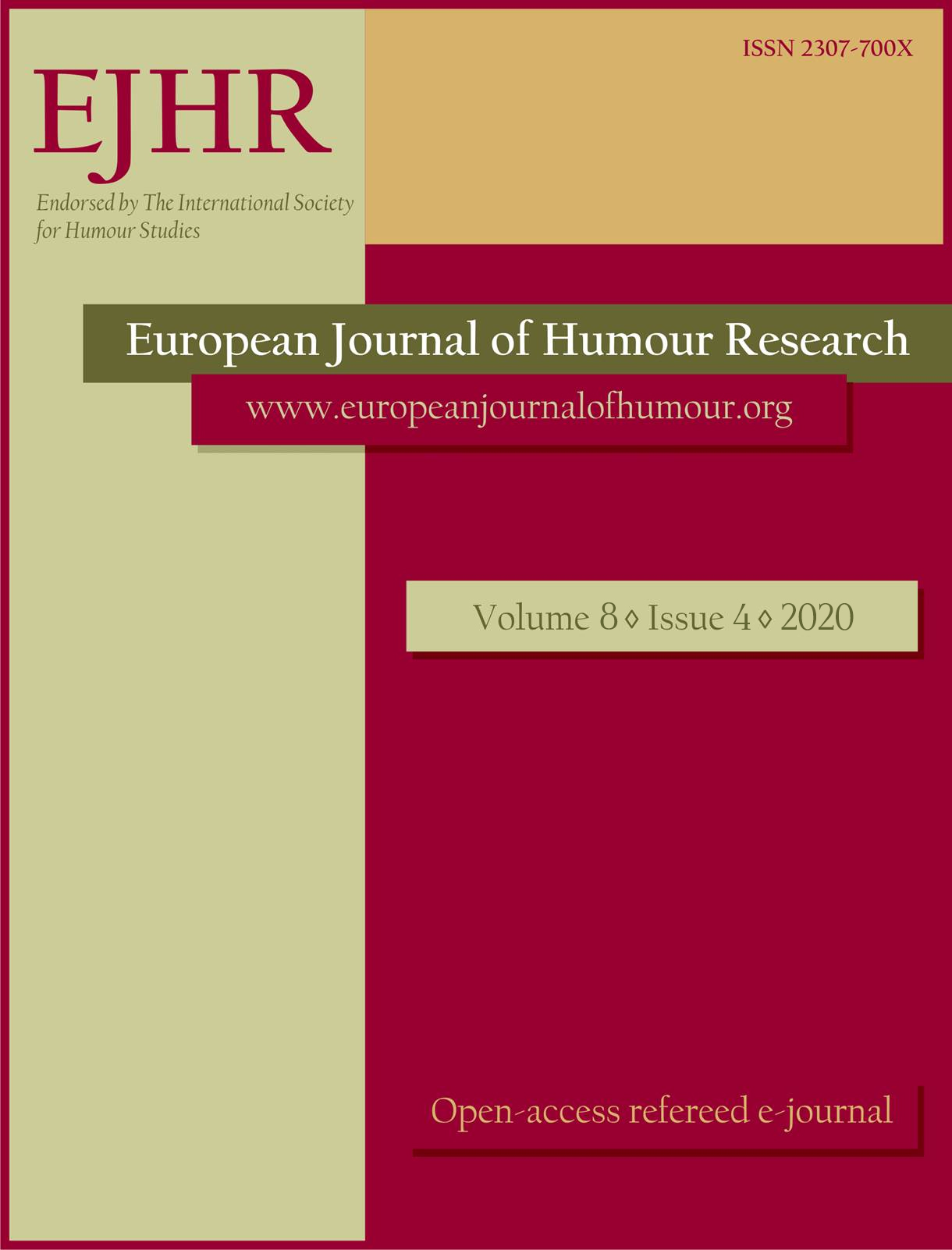
Wilkie, Ian Angus (2016) Performing in Comedy: A Student’s Guide, London: Routledge.
More...![Cowboy Cops and Black Lives Matter: Three Billboards Outside Ebbing, Missouri and the Great White West[ern]](/api/image/getissuecoverimage?id=picture_2020_57831.jpg)
The racial framework of Martin McDonagh’s 2017 film Three Billboards Outside Ebbing, Missouri rests at the intersection of three persistent cultural myths—the Frontier Myth, the hero cowboy myth and the myth of white supremacy. There has been much criticism of the portrayal of black characters in the film, and particularly the lack of significant black characters in a film that sports a solid undercurrent of racial politics. While the black characters in the film occupy a small amount of screen time, this paper argues that the film’s treatment of black characters, including their absence, puts on display the cultural dysfunction of racial politics in the US, especially in rural America, and particularly in Missouri. The film’s subversion of the cowboy hero instead reveals the disturbing reality of the Frontier Myth and its dependence on racism and white supremacy for validation. In its unmasking of myth, Three Billboards challenges the illusion of a glorious Western past that never existed and at the same time supports racial justice and the Black Lives Matter movement.
More...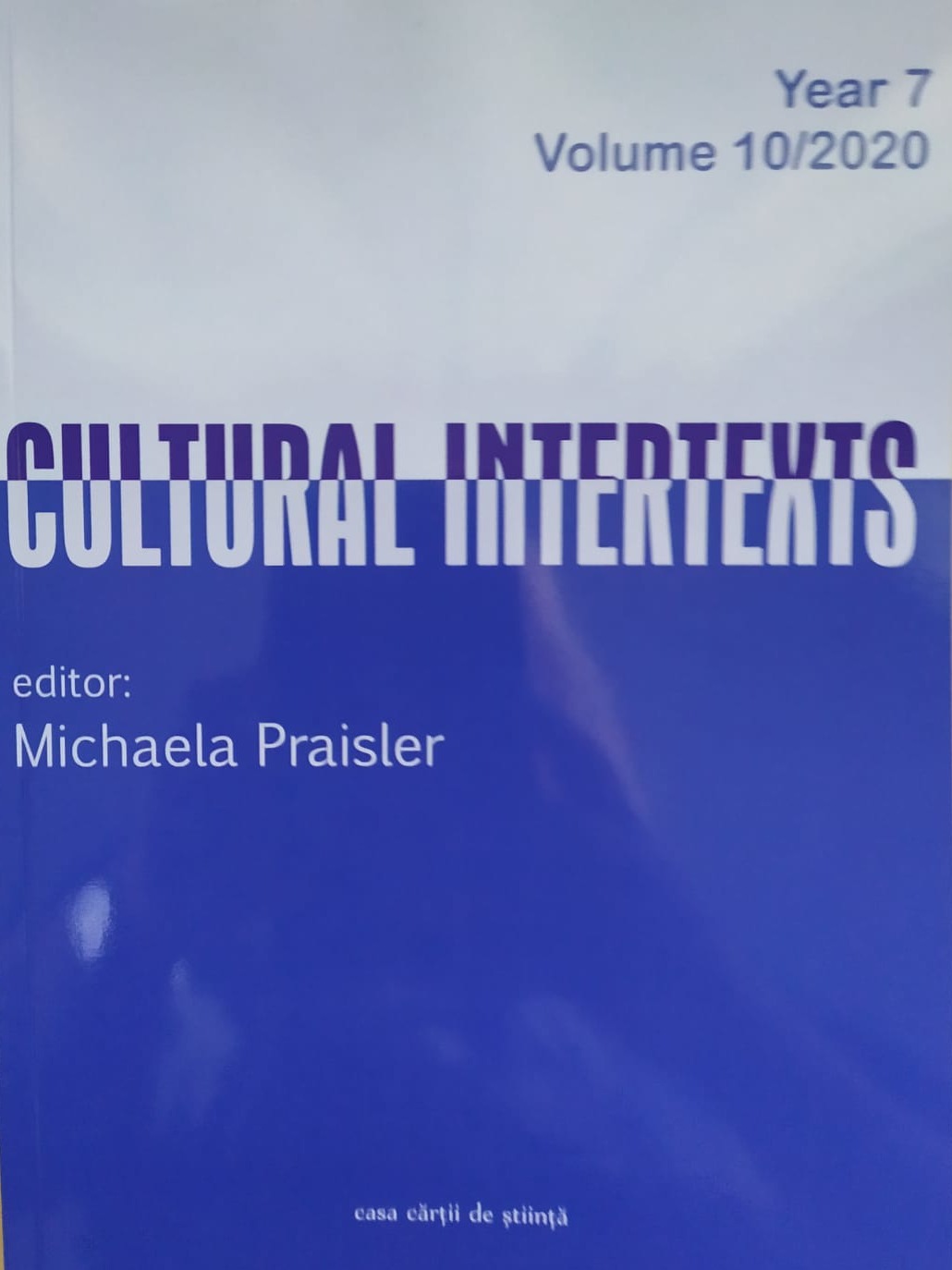
Actress Mary Pickford is perhaps best remembered for her silent-screen persona “Little Mary.” But there was another important aspect to her Hollywood career that is frequently overlooked today: Pickford’s rise to power and fame corresponded with the era of the “New Woman” in U.S. society. This article explores the mediated construction of new womanhood as communicated through the coverage of Pickford’s career between 1918 and 1921 in the pages of the fan magazine Photoplay. It demonstrates how Photoplay used coverage of Pickford to promote the ideal of new womanhood until 1919, when she became the most powerful woman in American moviemaking by co-founding United Artists with three men. After that, at the start of the Roaring Twenties, the magazine sought to contain new womanhood by presenting Pickford almost exclusively as a child, without continuing to acknowledge her abilities as a savvy movie mogul and grown woman as it had regularly done in the past—until significant changes in her personal life required another noteworthy shift in the magazine’s coverage patterns of this star.
More...
Perchance the world’s greatest advertisement of fairy-tales, Once Upon a Time, the fantasy drama television series featured on Netflix, goes past its entertaining marketing strategies and brings to the fore one of the longest enduring and most polemical poststructuralist theories, i.e. the death of the author and the literary emancipation of characters. The aim of the current paper is to prove, above anything else, that the primary object of Once Upon a Time, the TV series can be construed as one of telling the story of the characters’ literary emancipation and the inherent death of the author.
More...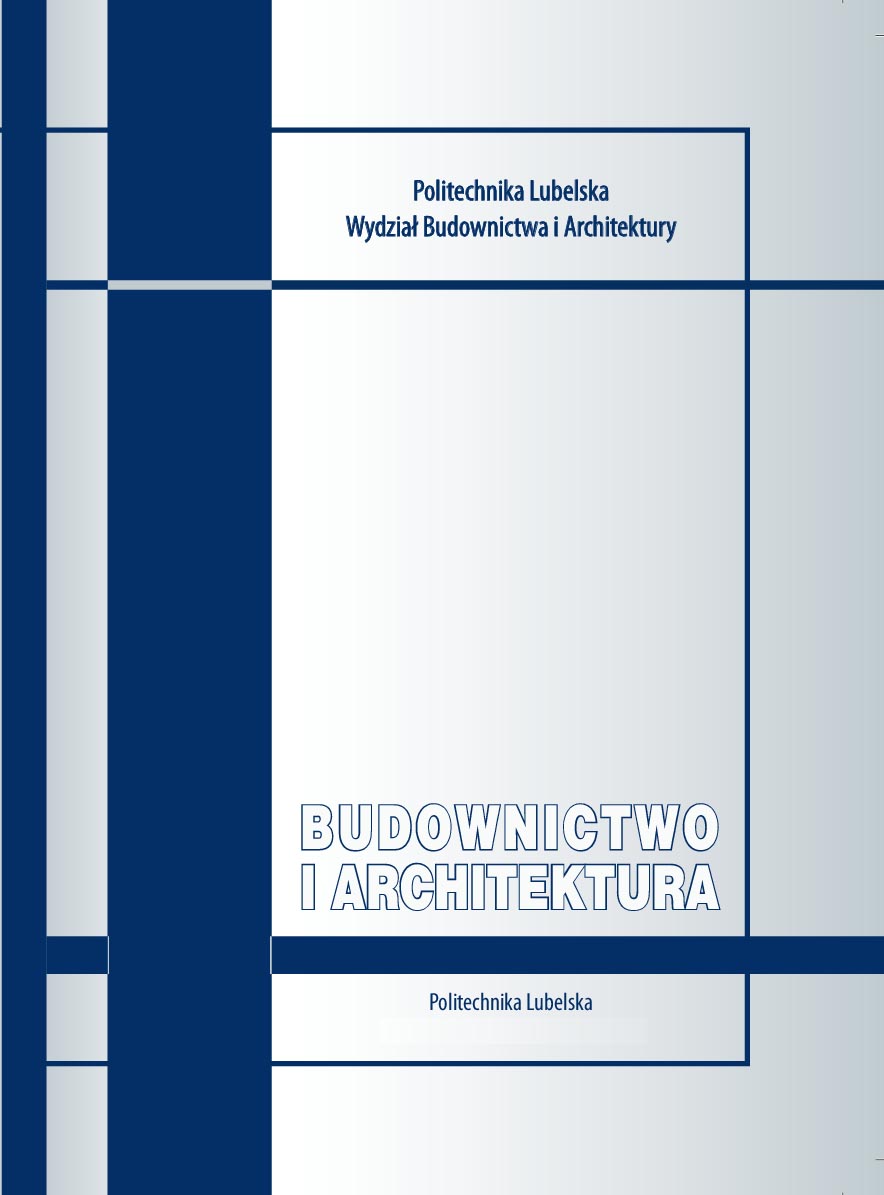
The paper presents a sacred painting located on the road arch in St. Kazimierz Church in Lublin, which was forgotten for hundreds of years. The fresco was covered by several layers of paints dated from XIX and XX century. It survived likely because the space was too difficult for adaptation as an industry space. The space was used as a storage or a meeting room. Currently it works as a storeroom and a drying room for people living in the building. The present function is utterly incompatible with surrounding work of art you can see on the wall.
More...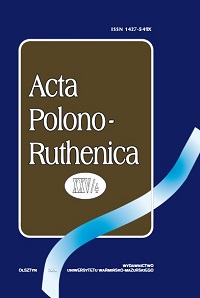
This paper presents two forgotten Polish translations of Russian prose works: the pre-Romantic story Sierra-Morena by Nikolay Karamzin (“Tygodnik Wileński” 1821, no 13, pp. 8−16) and the moral novel Three sisters, or a Phantom of Minvana by Vasily Zhukovsky (“Tygodnik Wileński” 1822, no 9, pp. 200−206). It contains the polemics with Wiktor and Halina Czernianin, whose research primarily concerned the attribution of the works and their belonging to the literary genre (both the novels or a novel) and movement (sentimentalism or pre-Romanticism). The paper presents the translations of Sierra-Morenaand Three sisters... in the light of: 1. the programme, structure and themes of “Tygodnik Wileński” – sections, Polish and West-European literature, translations of Karamzin’s works and 2. the specificity of translation – comparison of the translations of Sierra-Morenain 1821 and 1839 (“Rozmaitości” 1839, no 18, pp. 137−140).
More...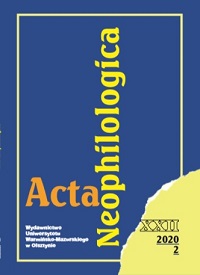
The aim of the considerations presented in this paper is to determine the specificity of movement in contemporary dance. This specificity is considered at three levels: as the relationship of body parts to each other, as the relation of the body and part of it to the stage space, and as the relation of the body and parts of it to the qualitative parameters of movement such as speed, tension and size. The research data consist of the descriptions of dance performances, which are published in printed or electronic form during the organization of conferences, meetings and dance theatre festivals.
More...
The aim of this article is to analyze the latest reportage by Agata Tuszyńska entitled Personal luggage. After March [2018]. The author deals with the shared experience of the generation of young Jews, the children of those who survived the Holocaust, living in the Polish People’s Republic. The category of post-memory, defined in 1997 by Marianne Hirsch, is assigned to this experience reported in the text. The interpretation of the protagonists’ statements, however, demonstrates that it does not work in their case. Their memories are of a genuine generational character, but they consist of a variety of individual memories, in which the Holocaust is on the margin of experience.
More...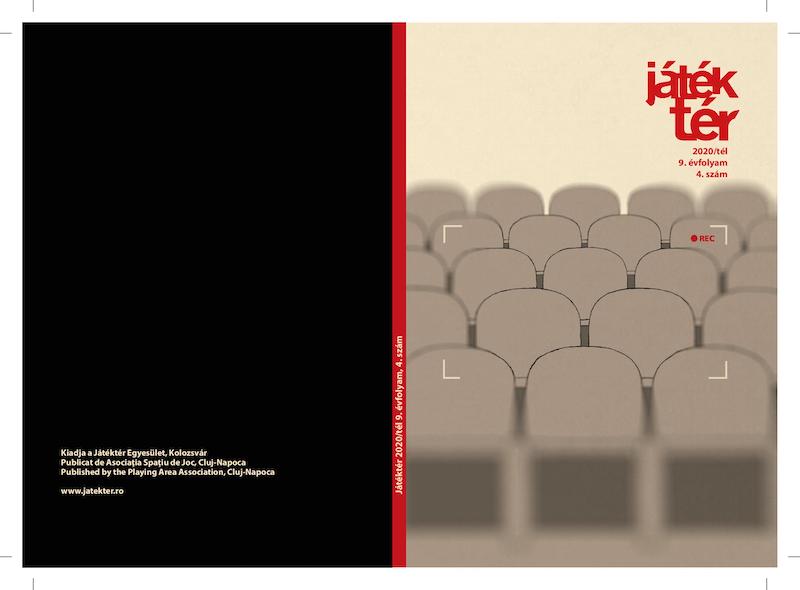
According to theatre historian Beatrix Kricsfalusi, the effort to define the theatre as such periodically returns in the history of European theatre. These definition attempts crop up, on the one hand, while creating the laws meant to regulate the practice of acting and theatre-making, and on the other hand, they start from the side of the practice and theory of theatre arts, characteristically in reform periods and crisis situations, when theatre creators position their activity against the inherited forms of theatre. The study analyses the issue of the normativity of theatre concepts in the context of the theatrical debates which have emerged in connection with the 2020 pandemic. Analysing these theatrical debates and the compulsive attempts at formulating definitions, Kricsfalusi argues that these imply the narrowing of the concept of the theatre and the disregard for innovative theatrical creations. Furthermore, as the author emphasizes, these debates understand by the concept of “the” theatre the bourgeois theatre based on the aesthetics of creating illusions. Thus, it is not by chance that theatre science, while being engaged in a productive dialogue with discourses describing the theatre in an essentialist way, has long ceased to try and come up with such definitions.
More...
Gondolatok a Szegedi Egyetemi Színpad Petőfi-rock című előadásáról és a diákszínjátszás paradoxonáról
The study of theatre historian Gabriella Kiss focuses on a paradigmatic performance of Hungarian neo-avantgarde theatre. The theatre performance titled Petőfi-rock, presented in 1973, has definitively transformed the Szeged University Theatre (Szegedi Egyetemi Színpad), functioning under the direction of István Paál since autumn 1968, into a cultural formation determined by the political power to accept a political speech situation. The author discusses this thesis from the perspective of community theatre and theatre education. In other words, she examines one of the greatest legends of the Hungarian “theatre of alterity” while also researching an aspect of its canon-forming function that is different from the director-centred experimental theatre. She starts from the premise that the Petőfi-rock show, which was awarded the second prize at the amateur talent show Szóljatok szép szavak – Petőfi Sándorról (Beautiful Words, Resound! On Petőfi Sándor), represents an important chapter, which is rich in art historical experiences, not only of the history of Hungarian directorial theatre, but of student theatre as well.
More...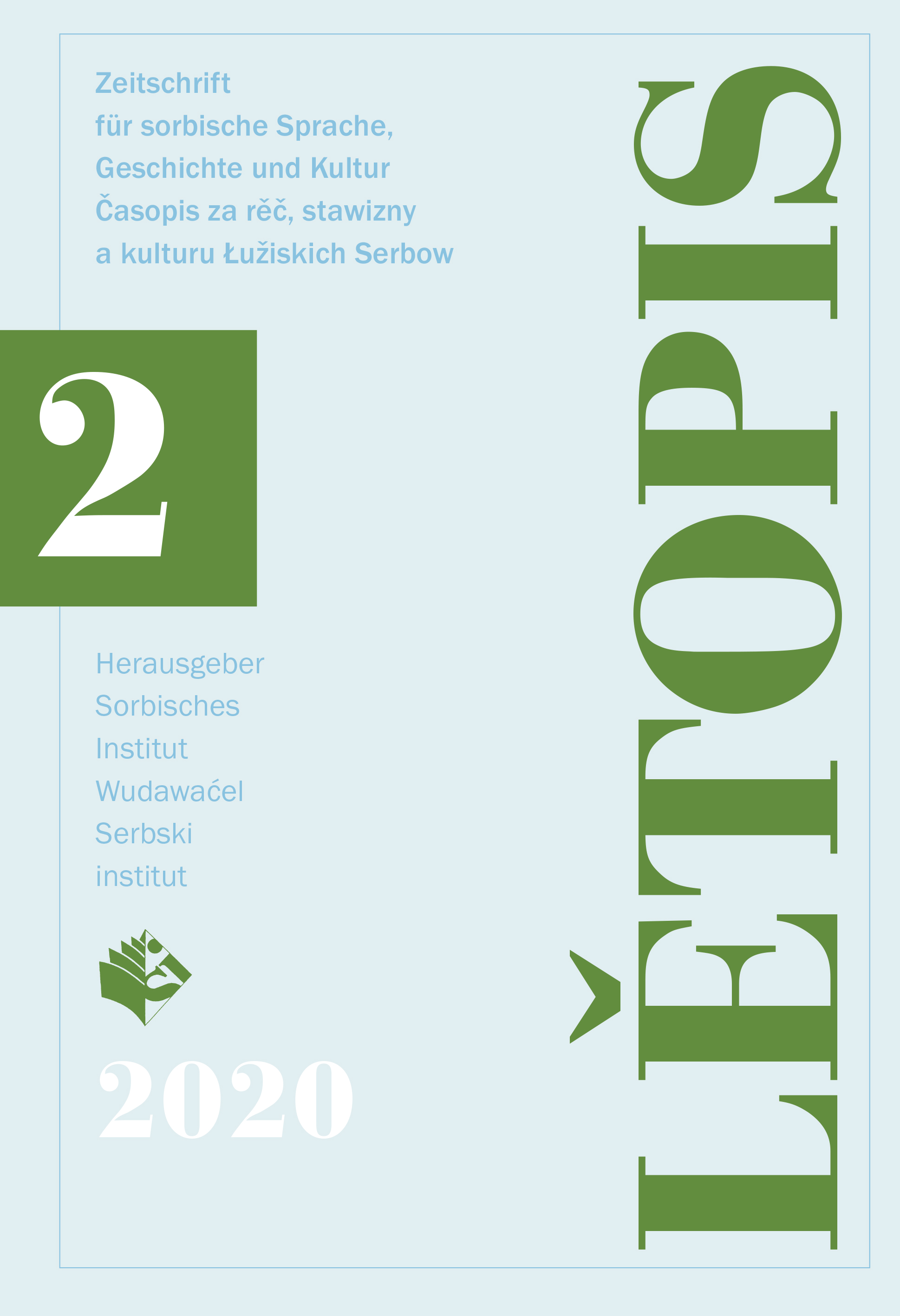
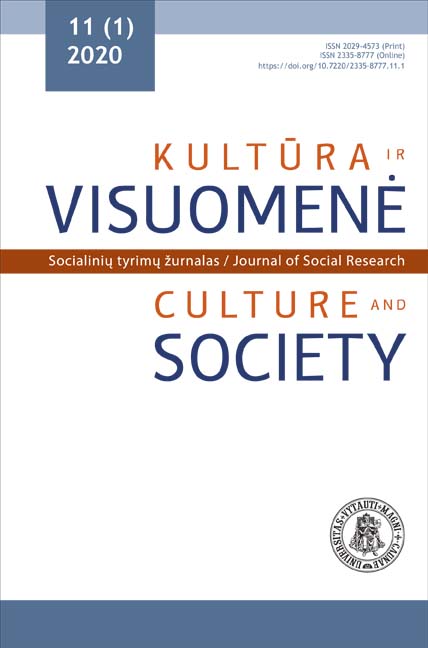
The aim of this article is to discuss the bodies of circus artists in circus history. In order to highlight the significance of the circus artist’s body in the circus and its change, the article analyzes studies and literature on the history of the circus, circus definitions and differences between the body’s position in traditional and contemporary circus. Going deeper into the history of the circus, it can be seen that the position of the circus in society has almost always been unstable, and it has been both marginalized and considered as an art of the elite. As the circus is a very bodily form of art, the changing position of the circus in society has also influenced attitudes towards the body of the circus artist. Likewise, the bodies of circus performers were seen as strange, unacceptable, abnormal, or an ideal example to society. The object of the article is the change of the body of the circus artist in the historical development of the circus. The text also analyzes the problems of circus periodization, as it is often difficult for circus specialists to agree on circus periods and their differences. Nevertheless, a clear distinction can be observed between the traditional and the contemporary circus and the bodies in there. The body of the contemporary circus artist is paradoxically distinguished by virtuosity and human vulnerability, their body is constantly in a state of pain, risk, fear, or success and must be ready for change. In the contemporary circus, the bodies of artists are self-reflective; they, unlike in the traditional circus, are close to ambiguity and thus the contemporary circus becomes an opportunity for self-expression and social critique to manifest through the body.
More...
The photograph was taken by Krisztina Kiss about the performance titled A nép ellensége (An Enemy of the People), presented at the HolnapUtán (The Day after Tomorrow) Festival of the Szigligeti Theatre. Starting from this image, János Henn, who plays one of the leading roles, reflects upon the legitimacy of theatre by way of a reverse train of thought.
More...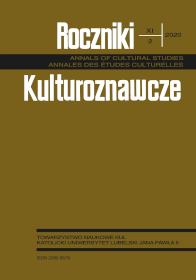
The figure of the donkey appears in the painting scenes based on Old and New Testaments. The topic of the “Flight into Egypt” was taken in two ways. According to the first, the Holy Family’s travel was depicted, the animal carries Mary and Jesus, it steps behind saint Joseph who sometimes keeps the donkey on the bridle. The sojourn was also presented, man reaches for fruit which angel gives him. Mother of God and the Saviour sit on the doneky’s back. The animal is bowed and is going to eat the plants.The profile of the donkey is pictured, his hair have different grey tones: from light to dark. The anatomy is correct, setting of legs shows motion. The harness is on the animal’s head. The donkey doesn’t interface with Holy Family, but it knows who the Boy is. The animal expresses a lot of positive features—calm, pride, obedience and wisdom.
More...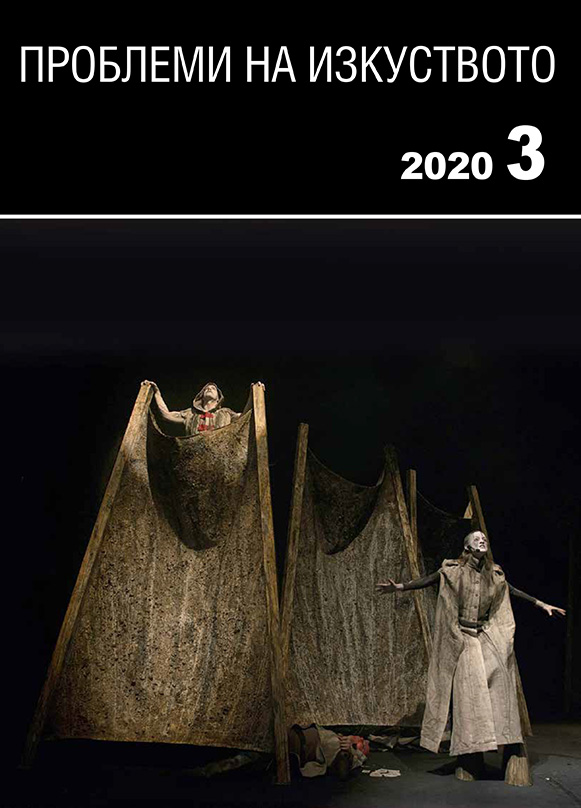
The article focuses on the transformation of the aesthetic space in the oeuvres of directors Vili Tsankov, Leon Daniel and Metofi Andonov in collaboration with set designers Mihail Mihailov, Mladen Mladenov, Ivan Kirkov and Stefan Savov; the establishing of Socialist Realism in Bulgaria’s theatre, its discrediting as a conceptual and aesthetic platform and the quests of directing and scenography in the field of space in the 1950s–1960s, when the first post-war generations came in. Some of them studied in Bulgaria and trained in the Soviet Union, and others were sent to study as close to the ideas of Socialist Realism as possible. That is the reason why it is interesting to trace, where possible, the historical perspectives of their public and aesthetic stances. Unlike other elements of a performance, space was a possible field of experiments as both criticism and censorial mechanisms were almost entirely concentrated on the text and acting. In this context, Bulgarian scenographers and directors of that period, though facing the challenge to work in an ideologically dogmatic environment, which was entirely partisan bias, still had a chance to diverge and move in the direction of their pursuits.
More...
After Mahabharata Brook was in a search of a contemporary theme that could move him but he rarely came across real situations or plays that went beyond the ordinary. He felt necessity to detach from the myths of the past, the historical themes and costumes and the worlds of imagination. Although he watched shows based on contemporary texts and believed in contemporary plays Brook felt that due to some complicated social psychological reasons contemporary authors of novels and theatre plays were missing something. They were missing the great compassionate generosity that allowed the author to present entirely contradictory human beings. This kind of generosity had been characteristic for Shakespeare, Dostoyevski, Tolstoy, Dickens and Balzac. Each Shakespearean character had been according to Brook objectively alive, a real human being.Most of the authors fell into the trap of their own success and reproduce copies of themselves. The writer did not serve to hidden realities that he evoked but to his own point of view. Brook’s attention was attracted by science as the new contemporary mythology as it researched the same eternal mysteries with a new symbolic language. The trilogy of Peter Brook about the human brain encompasses The man who (1993) based on the British neurologist Oliver Sacks (1933-2015) about his patients’ clinical cases, Je suis un phenomene (1998) based on the book of the Russian neurologist Alexander Luria about Solomon Shereshevski and The Valley of Astonishment (2014), where Brook together with his actors researched synaesthesia – a physical condition where the impressions of a sense cause impression into another sense. These are the experiences of real people that see the world in a radically different way.
More...

